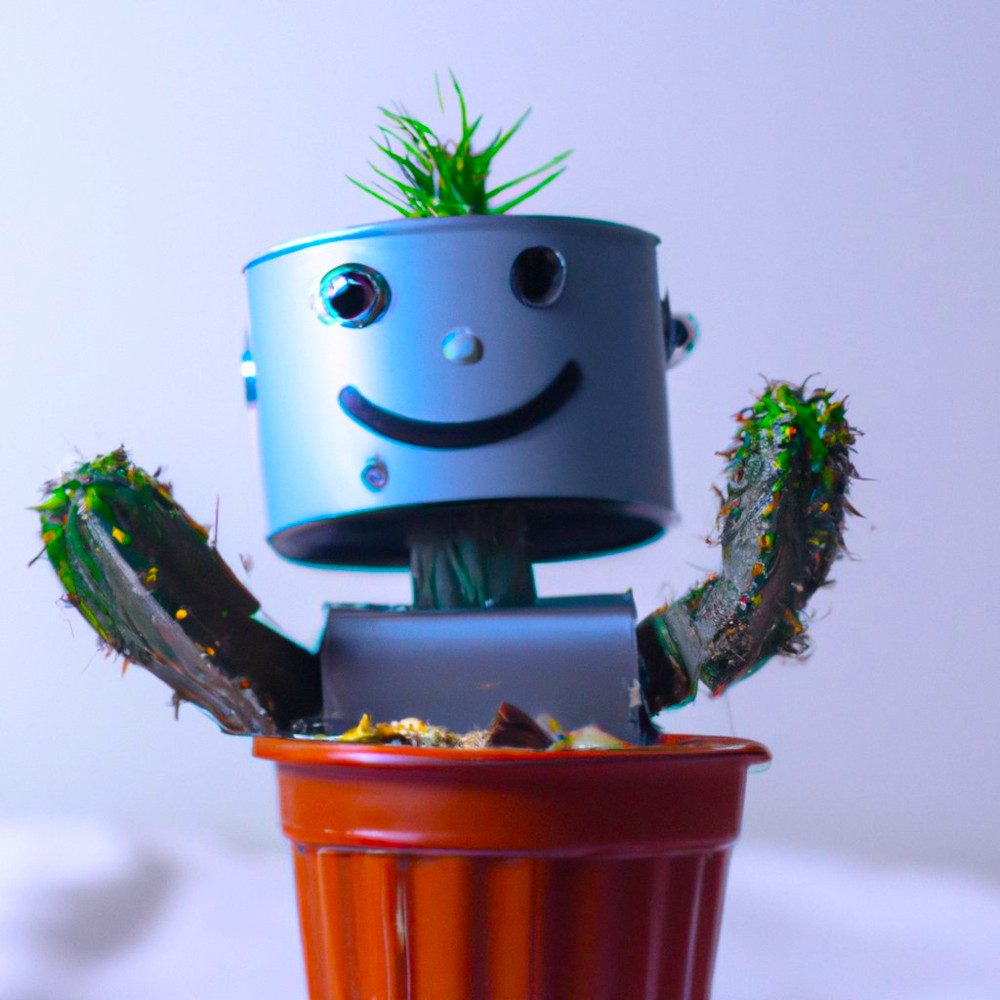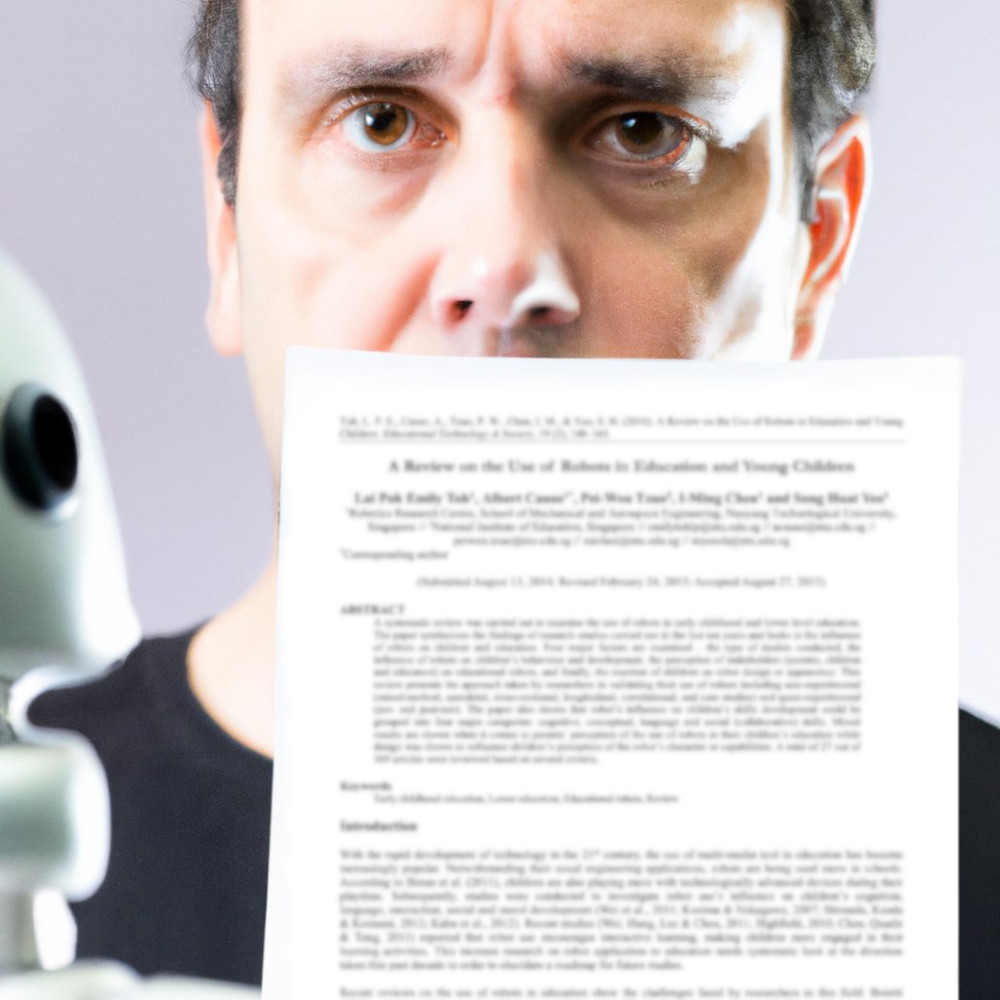Students, have you ever considered using AI to help you with your writing projects? AI writers, like Caktus AI can be helpful tools, saving you valuable time and effort. However, long-term risks may emerge from using them without careful thought. Parents and teachers want to help you learn how to use AI writers ethically and responsibly so that you can benefit from their use without putting yourself at risk.
In this article, we will look at how to use AI writers ethically and responsibly so that you can make the most of this new technology! Careful use of AI writers can help students learn more effectively but teachers must change their outcomes to adapt to this new technology.
Let’s start with an introduction to Caktus AI for those unfamiliar with this new company. You can find even more information on Caktus AI if you are interested.
What is Caktus AI
Caktus is a new AI-based tool created by a former University of Notre Dame football player to help students with assignments and projects. Caktus AI can be used to produce essays, solve mathematical problems, and write code. It is user-friendly, and it can be used to create original and unique content in seconds.

The Caktus AI platform has various features such as an essay generator, code generator, problem-solving feature, flashcard feature, excuse generator for late to class, career-related questions, and much more.
What Do Students Like About Caktus AI
With the proliferation of AI-assisted writing tools, understanding why students are drawn to these technologies can be of use. In my research, I have uncovered 19 reasons. Some results are surprising, while others may confirm what you already suspect.

- Many students see AI-generated writing as a potential solution to the pressures of academic work and the depletion of their time — time they could spend studying, sleeping, or engaging in leisurely or extracurricular activities.
- Students, especially higher education students, must write many essays, research papers, case studies, and other written assignments each semester. The workload can be overwhelming. AI writing tools solve this problem by allowing students to generate text quickly on a given topic.
- Students use AI writers to generate text for critiques or discussion boards for which they may not have an opinion or have the necessary real-world experience to comment.
- AI-generated texts have perfect spelling, grammar, and syntax and can be generated in seconds. However, the output may only be good beyond a few paragraphs. Students must carefully read and edit the copy generated by AI writers to check for plagiarism.
- With AI tools, students can brainstorm ideas and generate topics for papers and projects.
- Students can also simplify research by quickly generating citations, references, and summaries. While AI-generated texts can provide a short-term solution, they cannot replace the creativity and critical thinking skills students need to succeed academically.
- Students are increasingly turning towards AI writers because these tools promise to make their academic writing tasks more efficient and less time-consuming. AI writers are used to generate text, essays, and other content on a given topic. AI writers can help students become better writers.
- AI writers offer students more freedom when tackling a writing assignment because they instantly produce text in multiple languages.
- AI-generated content also allows students to explore topics more deeply, as it can generate content on virtually any topic within seconds.
- The most significant benefit of AI writers is that it can help students explore and write about topics that may have traditionally been difficult for them to tackle on their own. AI writers can do the groundwork for students and provide them with a starting point for their research. This can be especially useful for topics outside the student’s expertise.
- Students can better understand complex topics using AI writers and develop the skills to communicate their ideas effectively.
- Students improve their writing using valuable feedback. AI writers are capable of providing students with feedback on their writing. They can learn to identify and address the weaknesses in their writing. This can give students valuable skills to remember when working on future assignments.
- AI writers can also be used to detect plagiarism, ensuring that students use their own words and ideas when writing their assignments.
- AI writers can also help streamline the review process, as they can automatically check for grammar, spelling, and syntax errors.
- AI writers can provide students with a starting point to begin writing, with the student tweaking the generated text to make it more suitable to their needs.
- AI writers also help students diversify their sources. Rather than relying on textbooks or online sources, students can use an AI writer to generate ideas and content related to the given topic. This provides them with a more creative approach to writing,..
- AI writers can also help students develop their writing and editing skills. Although AI writers will generate text for them, it can be challenging. Students are still required to go through the generated text, making changes and editing it where necessary. This allows students to hone their writing and editing skills, allowing them to become better writers in the long run.
- Another advantage of AI writing tools is that it is affordable. Unlike hiring a tutor for help with essay writing, AI-writing tools are far cheaper and more readily available.
- And, of course, AI writing tools don’t procrastinate.
The Psychology Behind the Use of Caktus AI (and other AI writers)
While I am not a psychologist, I considered what makes AI writers, like Caktus AI, compelling. These physcoological principles apply to both young students and lifelong learners.

Satisfies the Need to Have a Captivating Personality – AI can write stories, essays, and other text-based works with persuasive and well-structured arguments. The ability to do that appeals to our need to control and agree.
Makes One Superhuman – AI can generate work much faster than humans can and can be used to assist with tasks that would otherwise take a great deal of time and effort. That ability fulfills our need to work quickly and efficiently.
Possess a Creative Soul– AI can be used to help writers come up with ideas, find relevant sources, and structure their work. AI can also help writers organize their thoughts and connect ideas meaningfully. With the help of AI, writers can create more detailed and comprehensive pieces of work that are more organized, readable, and persuasive.
Be An Effective Communicator – AI can also be used to help with editing and proofreading. AI programs can detect errors and suggest corrections more quickly than human editors, and they can also spot inconsistencies in arguments and offer suggestions. With AI’s help, writers can ensure that the final product is as polished and professional as possible.
Be a Big Picture Thinker – AI can synthesize and assemble lots of data in an easily consumable way. Being a big-picture thinker is crucial because it allows you to step back and look at the bigger picture. It enables you to analyze the situation or problem and make informed decisions. It allows you to see how different puzzle pieces fit together and how they all contribute to the overall outcome. It also helps you to be more creative and innovative when tackling complex problems or tasks. Lastly, being a big-picture thinker helps you see potential opportunities or solutions that might be overlooked.
Long-Term Consequences of Using AI Writers
Many articles discuss problems with AI writers, but I would rather discuss them in a different context. Indeed, AI writers offer students a new tool that didn’t exist just a few years ago. However, if left unchecked, what would be the consequences of overuse? I’ve added a few here.

Lack of creativity – Obviously, AI is still limited in that it can’t create original ideas. It can only work with the data that’s given to it. Over-reliance on algorithms and AI reduces our need to think deeply and deprives us of the opportunity to be creative.
Fewer jobs for tutors – As AI becomes more advanced, there will be fewer opportunities for tutors and writing teachers..
Lack of nuance or context – AI often doesn’t understand nuances and context, making it challenging to create meaningful content. While AI may detect errors and inconsistencies in writing, it cannot see the underlying message we are trying to convey, nor can it assess the effectiveness of the writer’s argument.
The proliferation of rehashed concepts – The risks of recycling old ideas are plentiful. It can be detrimental to creativity and freshness, reinforce stereotypes, and encourage passive consumption. Moreover, it can inhibit new ideas from emerging and prevent new perspectives from being shared.
Loosely or unfactual writing (AI Hallucination) – AI hallucination is a phenomenon in which a computer or AI system misinterprets or incorrectly perceives information in its environment. This can manifest in various forms, from misinterpreting data or images to wrongly predicting future outcomes or making false statements.
Biased or Harmful Speech – AI-generated text can also contain outdated or biased information and fail to respond well to requests to be corrected that require timely action, as well as can contain offending and harmful content. This can lead to a problematic situation in which the instructor is presented with a mix of human-written text and AI-generated segments with quality, content, and tone challenges.
How to Supervise the Use of AI Writers
Supervising students using AI writers can be a complex and challenging task, as various aspects must be kept in mind. First, it is important to ensure that the student understands the academic integrity policy of their institution, as many colleges and universities have policies that explicitly forbid the use of AI-generated content for assignments. If a student is found to have used AI-generated content for an assignment, that student may fail the assignment or the course.

Second, AI writers can provide students with an efficient writing process, allowing them to generate quick and accurate texts. As such, teachers need to familiarize themselves with the available AI tools, such as Jasper and ChatGPT, and how they work. Teachers must then ensure that students understand the potential limitations of these tools, such as their lack of originality and potential for biased or offensive content, and how to address them.
Third, students should be taught how to think about writing with AI. In his January 4th,2023 post on Medium, Glenn Kleiman advocates for the SPACE framework. This acronym stands for Setting the direction, Prompting the AI tool for a specific output, Assessing the generated text, Curating the text to select what to use, and Editing the combined output to produce a well-written document. This structure provides an organized writing method with AI tools; students must utilize them properly.
It is essential to be mindful of the implications of AI-generated writing. It could lead to writing assignments submitted by students, which a subsequent AI grades. What’s the point? Is anyone learning?
Thus, teachers must equip students with the writing skills to use AI writers responsibly while still adhering to their school’s academic integrity policy.
In conclusion, supervising students who are using AI writers can be a challenging task. Therefore, teachers need to ensure that students understand the potential implications of using AI writers and the need to adhere to their school’s academic integrity policy. It is also essential for teachers to familiarize themselves with the available AI tools and the SPACE framework for writing with AI tools to effectively equip their students with the necessary writing skills to use AI writers.
Key Takeaways for Parents and Teachers
- Monitor students’ use of AI writers and develop strategies to monitor it.
- Educate your students about the potential dangers of using AI writers
- Encourage them to be honest about how much an AI wrote their paper.
- Make sure you know the capabilities of AI writers and familiarise yourself with the AI writers out there.
- Talk to your students about the technology and explain why it’s essential to disclose it.
- Have a policy in place to address cases of plagiarism.
- Explain the consequences of plagiarism and the importance of only using AI when it adds value to the student’s work.
- Make sure this policy is transparent to both students and parents
- Consider using a plagiarism detection service to check papers for AI-generated content. These services are designed to scan documents for similarities to other sources, and they can detect signs of AI-generated writing.
- Finally, talk with your students about the ethical implications of using AI writers.
Educators must be aware of the limitations of AI tools and provide students with clear guidance for the use of these tools in completing assignments. When students are found to have used AI-generated content for an assignment, the consequences should be clear and consistent. Creating a comprehensive set of guidelines and expectations for using AI tools in student assignments will help ensure the most effective assessment of student knowledge and ethical use of AI technology.
Conclusion
Students increasingly use AI-assisted writing tools for various reasons outlined in this article. While AI tools can help students automate and streamline the writing process, they shouldn’t be relied upon too heavily. AI tools have limitations and cannot replace human creativity and critical thinking. Educators must ensure that students understand the potential implications of using AI-generated content and the need to adhere to their school’s academic integrity policy. Moreover, educators must provide clear guidance to students on using AI tools in completing assignments and the consequences of using AI-generated content. By doing so, educators can help ensure students use AI-assisted writing tools responsibly and ethically.



